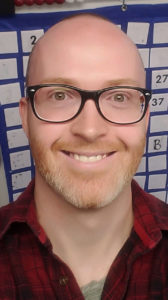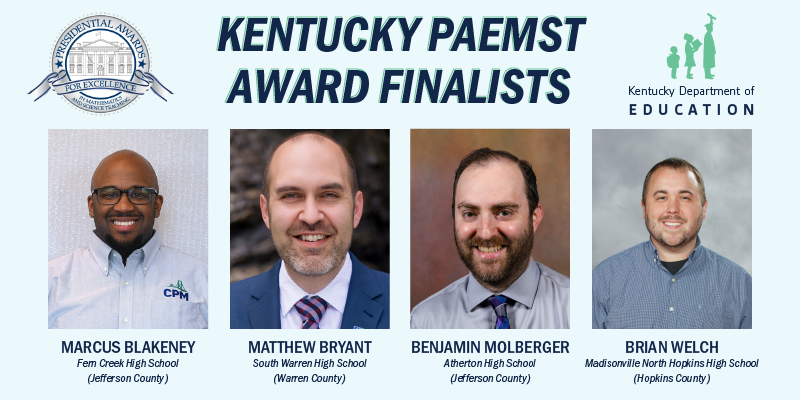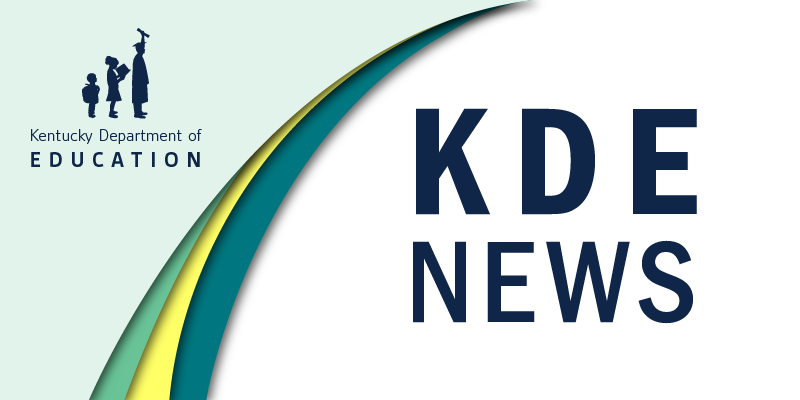
Nick Harris
By Nick Harris
nick.harris@madison.kyschools.us
Talking about math may seem, at first, like a pretty oxymoronic proposition.
After all, math has become so firmly associated with the symbolic system of numbers, operations and formulas that it would be easy to assume that there simply isn’t much to say. Many of us grew up experiencing math as nothing more than rows and columns of numerals lined up like hieroglyphics on a wall. As a result, it can be difficult to fathom the degree to which human beings can and need to talk about math.
Yes, math is thought of as the universal language of logic, but that distinction belies just how much good old-fashioned language is actually involved in mathematical processing.
Growing up, math was always a means to an end for me, the end being the answer that would satisfy my teacher. In my role as a teacher, I’ve come to find that the end is really only the beginning when it comes to thinking about mathematical processing. Of course, the ultimate goal of the problem is the solution, but I find the internal, metacognitive journey is far more interesting than the destination.
If I could choose to forego my salary in lieu of receiving a dollar every time the phrase “How did you know?” is uttered aloud in my classroom, I’d almost certainly pick that option. “How did you know?” is probably the most effective tool in my teaching kit. I don’t know anything until I ask, “But how did you know?”
As a teacher of math, it’s important to acknowledge that an answer really doesn’t tell me much about a student’s skills, strategies or mastery of standards. Asking for a verbal description of a student’s mental mathematical processing reveals a wealth of knowledge that I need to make informed decisions about teaching. What strategy is being used? Is it effective? Is it efficient?
Part of my job is to design instruction based on data. Some of the most actionable data I’ve ever received comes from knowing how my students reason strategically through a mathematical situation. I know nothing unless I know how they knew.
Get excited over a correct answer and students will work to give you one every time. Get ridiculously ecstatic over meta-cognitive awareness and they’ll dig deep into their own brains. Of course, talking about our ideas is risky. What if I’m wrong? What if what I say doesn’t make sense? There are social factors that need to be considered when we ask another human to lay bare their thoughts and ideas. But, embarrassment is really only a force to be reckoned with if mistakes are stigmatized.
Each year, incoming 1st-grade students and their parents are greeted by a giant, multi-colored sign in my classroom that reads, “Mistakes are Magical.” There is compelling research that suggests that engaging with mistakes prompts synaptogenesis. No, I don’t necessarily put it that way to my students; I just tell them that making mistakes helps their brains grow. I tell them that a lot. Like, a lot.
None of this counts for much unless my students have ample opportunity to just sit and talk about math. They need to talk to me, I need to talk to them, they need to talk to each other and they need to talk to staff members who are not me. They need to be washed over with mathematical language all day long. So we play games, we do Number Talks, we argue, we debate, we watch videos of each other and we write letters to each other in our journals about why we’re wrong. No one gets upset because hey, “mistakes are magical.”
We openly disagree with ideas that do not make sense and we enthusiastically challenge the ideas of others – even if they do make sense – because an idea means nothing unless it holds up under scrutiny. I’ve even had students purposefully disagree with an idea they know to be true just to force an argument. Arguments strengthen critical thinking and they absolutely have a place in the classroom provided they are approached with civility and respect. My students talk a lot, but they’re talking about math, so it’s OK.
Of course, this brings me back to language, the concrete words we use to convey our abstract, ever-changing thoughts. We need words to describe our thoughts, but where do these words come from? The words emerge from necessity.
If I need to use a word to capture a situation, I use it. Are my students automatically identifying an amount without counting? Well, that’s called subitizing, so that’s what we call it. My students’ vocabularies are only limited by my preconceived notions about what is developmentally appropriate.
I don’t shy away from $5 words because I think they might be intimidating; I wrap them in friendly language. Having a working bank of words to describe mathematical processing deepens a student’s ability to effectively convey his or her ideas to peers. The number that is subtracted in a subtraction problem is called a “subtrahend.” My kids say subtrahend. They don’t always pronounce it correctly, but they use it nonetheless.
But where do I learn these words? This is where developing strong, working relationships with colleagues comes in. Sure, my students talk to each other about math a lot, but who am I talking to in order to develop the language I need to teach to my students? As a classroom teacher, I’m kind of a Jack-of-all-trades, but most definitely a master of none.
That’s why I rely heavily on our school’s math interventionist, Bethany Neel. As we plan lessons and deconstruct standards, Mrs. Neel and I talk about talking about math to the point of absurdity, but I need those words floating around in my head so I can inject them into the atmosphere of my classroom. Without words, we are locked inside of our own heads. I want my students’ thoughts to flow freely and without constraint. That’s why we talk about math. A lot.
Nick Harris is a 1st- grade teacher at Daniel Boone Elementary School (Madison County). He has taught for 10 years, with much of that time spent in the primary classroom. Harris enjoys traveling around his district presenting his instructional practices to fellow teachers and also has presented for the Kentucky Center for Mathematics Annual Conferences and the 2015 National Council for Teachers of Mathematics Regional Conference. Learn more about his classroom on Twitter by following Mr_Harris_Math.



Leave A Comment